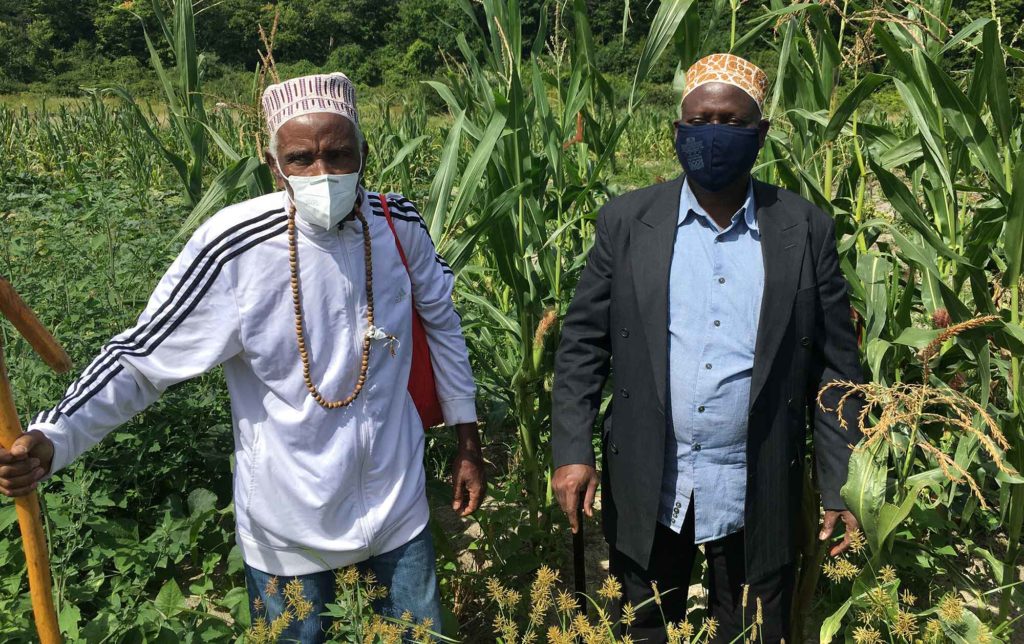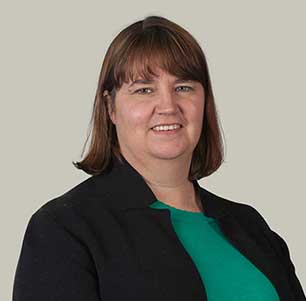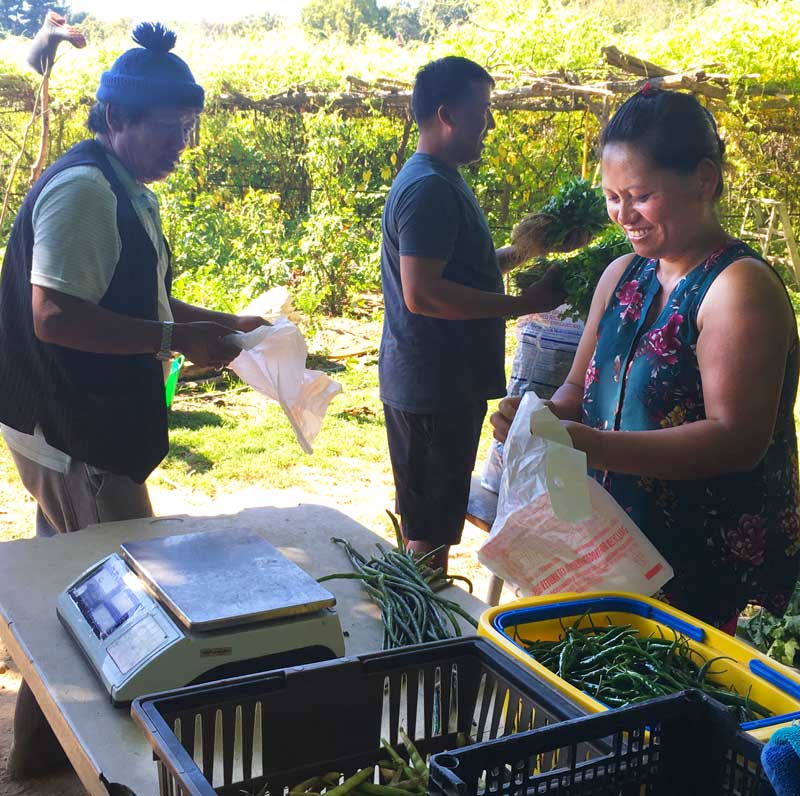Stretching across the Connecticut River at the southern tip of Massachusetts’ Pioneer Valley, the Greater Springfield area boasted a rich agricultural tradition well into the 20th century. Today, the local economy relies more on its academic might and service industries. But over the last two decades, newer arrivals from Africa, Asia, and Latin America have been playing a role in revitalizing the area’s agrarian identity.
Many of these refugee and immigrant farmers – from the Somali Bantu, displaced by civil war, to the Bhutanese, fleeing oppression in Bhutan and Nepal – brought their farming traditions and cultural crops to their new homes.
Once settled in the area, they sought to return to their farming roots. Growing their own fruits and vegetables provided a way to feed their families healthy meals with the familiar produce from their home countries. It also allowed them to share with their neighbors and contribute to the local community. For many, their farms and gardens also became a source of supplemental income.
The racially diverse Springfield is home to neighborhoods at higher risk of food insecurity, stemming from systemic discrimination that leads to a lack of affordable healthy food options compared to whiter, wealthier areas. Making locally grown and culturally diverse produce available and affordable in these neighborhoods plays an essential part in the fight against this food apartheid.
Over the past decade, the farmers have banded together in informal collectives to support each other and stay connected. These include the Bhutanese Vegetable Farmers of West Springfield, New Families Community Farm Cooperative, and Wakulima. However, even working together they face the same obstacles – like obtaining land – as other small and beginning farmers, but with the additional challenges of language and legal barriers, systemic discrimination, and limited family wealth.
In late 2017, leaders from four of these groups came together to start a nonprofit organization called All Farmers, committed to “putting and keeping refugee and immigrant farmers in the food system.” All Farmers works with these autonomous groups in Massachusetts and Connecticut, assisting in land access and acquisition, language interpretation, farm and business education and assistance, and other necessary resources.

After the initial agreement to form All Farmers came the less glamorous step of forming a nonprofit corporation and applying for recognition of tax-exempt status. The red tape around that process can be a costly burden in both time and money for a fledgling operation. At the time, says Hannah Spare, Executive Director of All Farmers, the organization was in an “incubation period,” running on a shoestring budget. Before they could continue to advocate for farmers as a new entity, they needed some help themselves. Spare had heard about CLF’s Legal Food Hub during her years in local farming circles and reached out.

CLF started the Legal Food Hub as a first-of-its-kind service in 2014, pairing farmers and other food producers with free legal assistance. Today, the Hub serves Connecticut, Maine, Massachusetts, Rhode Island, and Vermont. In early November, the Hub began serving New Hampshire, completing its New England network.
Small farms, food start-ups, and food-related organizations have the odds stacked against them when it comes to the legal fees and complexities that come with starting businesses, acquiring land, contracts, and more. A clear “legal gap” exists with only 10% of farmers using necessary legal services compared to 70% of small businesses. And what farmers don’t know can hurt their chances of success. “Smaller organizations are at a disadvantage and may not be aware of the benefits of receiving legal advice. There are many ways a lawyer can help you obtain your business goals,” says Jenelle Dodds, partner at Bulkley Richardson and volunteer lawyer with the Hub.
Working with the Legal Food Hub in 2018, All Farmers registered as a state nonprofit and came to a fiscal sponsorship agreement with CISA (Community Involved in Sustaining Agriculture), a larger, local nonprofit. That allowed the organization to hold off on applying for recognition of federal tax-exempt status – a common approach, according to Dodds.
After three years, All Farmers has become firmly established in the region as a vital resource, now supporting over 60 families and growing. In 2020, the group expanded its reach, starting two farmer’s markets in predominantly low-income, immigrant neighborhoods. With this growth came the need for the organization to apply for federal tax-exempt status, which was critical to their ability to acquire land using tax-exempt donations. So, as she had done before, Spare reached out to the Legal Food Hub.

This time, Dodds answered the call. Dodds, who practices business and finance law, says she has developed a specialty in tax exemption – a critical area for nonprofit organizations. She has volunteered with the Legal Food Hub for the past few years, offering free legal assistance for farmers’ markets in Massachusetts.
Her sense of duty comes from trying to bridge the gap between those who can readily afford legal assistance and those who can’t. “It’s an opportunity to counsel to people who don’t have a lot of legal support,” Dodds says. “Working with them has made me more appreciative of the organizations [like All Farmers] that are out there.”
With only a month to apply for recognition of tax-exempt status before accepting a large donation for a land purchase, Spare and Dodds got to work. Dodds flagged issues and translated the legal jargon within the complicated paperwork for Spare, who provided the nonprofit’s numbers while also working with an accountant. The team turned All Farmers’ application around in a tight window and the organization hopes to receive its recognition of its federal tax-exempt status by early 2022.
Spare felt grateful to work with the Hub again and mark another milestone in All Farmers’ journey. “Agriculture is not a lucrative field, especially nonprofit,” she says. “Having this resource [the Legal Food Hub] that farmers can actually get the support they need is great.”
With that peace of mind, All Farmers can focus on advocating for and providing that same sense of security for the community it serves – and, in turn, for their neighbors in their corner of the Pioneer Valley.
